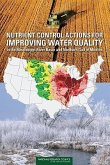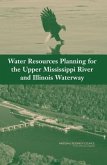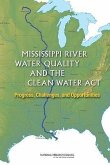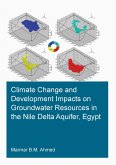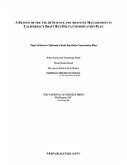"Ned Randolph weaves together history, geography, environmental philosophy, and narrative storytelling to offer insights that apply to distant geographies and varied cultural contexts. Amid the overwhelming effects of environmental catastrophe and collapse, it is grounding to read a book that is so carefully set in its place and time."--Christopher Schaberg, author of Searching for the Anthropocene: A Journey into the Environmental Humanities "This is a stunning, well-written blend of cultural theory and empirical research. Randolph provides unparalleled insight into the Gulf Coast and the environmental crisis playing out there, in a region with some of the most destructive petrochemical industries in the country and the world."--Toby Miller, author of Greenwashing Culture "This searing portrait of extractivism, riverine geoengineering, and environmental injustice illuminates how New Orleans became one of the world's most vulnerable and also resilient coastal cities. Randolph's embrace of muddy alternatives to the capitalist and technopolitical vectors of the Anthropocene exemplifies beautifully how Energy Humanities can stay with the troubles of these times."--Dominic Boyer, author of No More Fossils "Randolph's fluid story of mineral extraction is in coastal Louisiana, but the social context involves living anywhere without the false contrasts of hope and hopelessness, or flaccid acceptance of doom, living instead within the bubbling humanness and interrelationships of all kinds and pressing forward without dogmatism and with aspiration."--Eugene Turner, Boyd Professor, Department of Oceanography and Coastal Studies, Louisiana State University "Compelled by Hurricane Katrina and the destruction of New Orleans, Randolph develops an exceptionally well-crafted, even poetic analysis of the Mississippi River--as an object through which the state organizes and regulates the circulation of natural, human, and economic resources; as the product of historical and contemporary mapping practices that have been shaped by changing and often conflicting political, economic, social, and cultural imaginaries seeking to produce a stable, predictable artifact; and as a multicentury infrastructure project, repeatedly undone by the disruptive, unpredictable presence of the Mississippi's most basic assemblage, 'mud.' Mud is Randolph's point of departure for understanding the region's past and future--a vehicle of disruption and constraint, certainly, but also, in Randolph's deft reading, the very condition of possibility for sustaining life amid ecological ruin."--Valerie Hartouni, Professor Emerita, UC San Diego "By centering not water or purification but mud and muddiness, Randolph ingeniously tells the story of the Lower Mississippi River region anew, as a nexus of ongoing wild climate contradictions. Muddy Thinking in the Mississippi River Delta describes looping patterns of multivalent extractivism, while witnessing and calling forth righteous resistance, tender coexistence, and hope amid the messy petro-delta-apocalyptic."--Rebecca Snedeker, coauthor of Unfathomable City: A New Orleans Atlas "Among the most vulnerable geographic locations to climate catastrophes, the Mississippi Delta region is often characterized as being especially endangered by the uncontrollable onslaught of water: rising seas, shifting tributaries, and torrential rains. With this book, Randolph urges us to pivot our attention to the profound complexity (and deep historicity) of mud. Using what he calls 'muddy thinking' to excavate the material composition of the Delta's constitutive silts and soils, Randolph highlights how capitalism and politics have collaborated in their extractive efforts to contain and control water in the interest of corporate profits, exacerbating the catastrophic effects of human-caused climate change. In so doing--and despite empty promises of sustainability in the interest of the greater good--they have neglected to consider the literally shifting sands of the land from which they have so greedily extracted their capital. This is a brilliant book, ingeniously conceived, deftly argued, and beautifully written."--Patrick Anderson, author of Autobiography of a Disease
Hinweis: Dieser Artikel kann nur an eine deutsche Lieferadresse ausgeliefert werden.
Hinweis: Dieser Artikel kann nur an eine deutsche Lieferadresse ausgeliefert werden.


